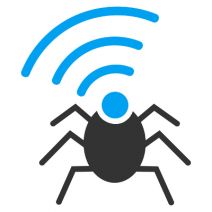Have any question?
Text or Call (954) 573-1300
Text or Call (954) 573-1300
 Since the dawn of the computing age, hackers have taken advantage of all sorts of tactics in order to crack systems and ruin lives. With the Internet of Things bringing connected devices from all over the place into the mix, there are more opportunities than ever to take advantage of unsuspecting users. In fact, even car computers are capable of being hacked.
Since the dawn of the computing age, hackers have taken advantage of all sorts of tactics in order to crack systems and ruin lives. With the Internet of Things bringing connected devices from all over the place into the mix, there are more opportunities than ever to take advantage of unsuspecting users. In fact, even car computers are capable of being hacked.
 The Internet is up to its ears with threats and hackers, but some of the most annoying malicious entities are bots. These are systems which can gather information from all kinds of sources. While some aren’t malicious in nature (think SEO bots which gather data from websites), there are those that aren’t so innocent. These tend to fall into the hands of hackers and attempt to steal information or send spam.
The Internet is up to its ears with threats and hackers, but some of the most annoying malicious entities are bots. These are systems which can gather information from all kinds of sources. While some aren’t malicious in nature (think SEO bots which gather data from websites), there are those that aren’t so innocent. These tend to fall into the hands of hackers and attempt to steal information or send spam.
 People dial 911 when they’re in some sort of trouble or in the event of an emergency. If not for the hotline, who knows how many lives could be lost daily. Sometimes, however, help doesn’t come, even when dispatchers have received the call and responded. This generally isn’t the fault of the dispatchers, but rather the criminals who have undermined the rescue efforts thanks to some unorthodox hacking.
People dial 911 when they’re in some sort of trouble or in the event of an emergency. If not for the hotline, who knows how many lives could be lost daily. Sometimes, however, help doesn’t come, even when dispatchers have received the call and responded. This generally isn’t the fault of the dispatchers, but rather the criminals who have undermined the rescue efforts thanks to some unorthodox hacking.
 Does your office practice proper maintenance and security against the latest threats, like Sandworm and CryptoWall 2.0? You should, or else your business might get a nasty holiday gift in the form of the Schannel vulnerability in Microsoft Office. This particular threat allows a hacker to take over the entire system, making it an exceptionally dangerous vulnerability that you can’t ignore. Thankfully, a patch is available to the general public, so you want to apply it as soon as possible.
Does your office practice proper maintenance and security against the latest threats, like Sandworm and CryptoWall 2.0? You should, or else your business might get a nasty holiday gift in the form of the Schannel vulnerability in Microsoft Office. This particular threat allows a hacker to take over the entire system, making it an exceptionally dangerous vulnerability that you can’t ignore. Thankfully, a patch is available to the general public, so you want to apply it as soon as possible.
 This holiday season might leave technology and entertainment supergiant Sony with nothing but a big lump of coal in its stocking. In a high-profile hack, hackers continue to leak Sony’s employees’ sensitive information like Social Security numbers, passports, and even personal emails. This is obviously an issue for the company, but so is its lack of IT security, as shown by their passwords being stored in a folder named “Passwords.”
This holiday season might leave technology and entertainment supergiant Sony with nothing but a big lump of coal in its stocking. In a high-profile hack, hackers continue to leak Sony’s employees’ sensitive information like Social Security numbers, passports, and even personal emails. This is obviously an issue for the company, but so is its lack of IT security, as shown by their passwords being stored in a folder named “Passwords.”
 Grab your tissues, it’s flu season! Just like biological viruses such as the flu can cripple an entire office, digital viruses can cause a lot of trouble for businesses too. Both downtime-causing virus scenarios can be prevented if proper safety measures are followed, like sanitation and cybersecurity.
Grab your tissues, it’s flu season! Just like biological viruses such as the flu can cripple an entire office, digital viruses can cause a lot of trouble for businesses too. Both downtime-causing virus scenarios can be prevented if proper safety measures are followed, like sanitation and cybersecurity.
 Hackers come in all shapes and sizes, with varied levels of skills to boot. The generic garden-variety hacker will probably only try to hack your email and send spam, or steal your personal information. However, there are much worse threats out there, like APT hackers. This week, we’ll cover how you can spot these wolves in sheep’s clothing.
Hackers come in all shapes and sizes, with varied levels of skills to boot. The generic garden-variety hacker will probably only try to hack your email and send spam, or steal your personal information. However, there are much worse threats out there, like APT hackers. This week, we’ll cover how you can spot these wolves in sheep’s clothing.
 Everyone has heard horror stories about the spirits of the dead lingering in this world. Every culture on this planet has different beliefs about the nature of these spectral beings. Not much is known about these beings, but people still believe without a doubt that they exist. In regards to technology, ghosts do exist, in the form of ghost servers.
Everyone has heard horror stories about the spirits of the dead lingering in this world. Every culture on this planet has different beliefs about the nature of these spectral beings. Not much is known about these beings, but people still believe without a doubt that they exist. In regards to technology, ghosts do exist, in the form of ghost servers.
 A few weeks ago, a new vulnerability was discovered in the Internet Explorer functionality of SSL 3.0. Due to the encompassing nature of the vulnerability, all operating systems are affected. This makes it a big problem that must be resolved. Thankfully, Microsoft has released a fix to the vulnerability, called Fix It, making it far easier to prevent the vulnerability from becoming an issue.
A few weeks ago, a new vulnerability was discovered in the Internet Explorer functionality of SSL 3.0. Due to the encompassing nature of the vulnerability, all operating systems are affected. This makes it a big problem that must be resolved. Thankfully, Microsoft has released a fix to the vulnerability, called Fix It, making it far easier to prevent the vulnerability from becoming an issue.
 Hackers are mysterious. Not much is known about them - until they get caught, at least. But until the divine hammer of justice is brought down upon them, they will continue to stalk the shadows and wait for us to unknowingly hand over our personal information. What they don't want you to know is that they generally act according to a few particular variables, and that it is possible to avoid their pitfalls.
Hackers are mysterious. Not much is known about them - until they get caught, at least. But until the divine hammer of justice is brought down upon them, they will continue to stalk the shadows and wait for us to unknowingly hand over our personal information. What they don't want you to know is that they generally act according to a few particular variables, and that it is possible to avoid their pitfalls.
 We reported in August that security researcher Karsten Nohl of SR Labs revealed a flaw in USB firmware that cripples the technology beyond repair. At the Black Hat security conference, it was revealed that USB devices of all kinds can be targeted by hidden malware. Nohl refused to release the code used in the research, due to being concerned that it would be used by the wrong hands, but it has been made public anyway, putting the masses at risk.
We reported in August that security researcher Karsten Nohl of SR Labs revealed a flaw in USB firmware that cripples the technology beyond repair. At the Black Hat security conference, it was revealed that USB devices of all kinds can be targeted by hidden malware. Nohl refused to release the code used in the research, due to being concerned that it would be used by the wrong hands, but it has been made public anyway, putting the masses at risk.
 Major retailers are having a rough time of it these days concerning the security of their customer's financial information. Last December, Target was hit with malware that compromised 40 million customer credit and debit card accounts, and recently, Home Depot was hit with the same malware. What's a connoisseur of mass-produced boxed goods to do?
Major retailers are having a rough time of it these days concerning the security of their customer's financial information. Last December, Target was hit with malware that compromised 40 million customer credit and debit card accounts, and recently, Home Depot was hit with the same malware. What's a connoisseur of mass-produced boxed goods to do?
 For Washington D.C. residents, there's a dubious threat looming in their backyards putting their personal data at risk. It's Coco, a Siamese cat wearing a high-tech collar designed for hacking WiFi networks. Have you taken the proper security measures to protect your sensitive information from feline foes like Coco?
For Washington D.C. residents, there's a dubious threat looming in their backyards putting their personal data at risk. It's Coco, a Siamese cat wearing a high-tech collar designed for hacking WiFi networks. Have you taken the proper security measures to protect your sensitive information from feline foes like Coco?
 If 2014 hasn't been a legendary year for data breaches yet, it certainly is now. Community Health Systems, a hospital network for over 206 facilities across the United States, has been the target of a data breach resulting in 4.5 million records being compromised by Chinese hackers, including Social Security numbers, birthdays, names, addresses, and telephone numbers.
If 2014 hasn't been a legendary year for data breaches yet, it certainly is now. Community Health Systems, a hospital network for over 206 facilities across the United States, has been the target of a data breach resulting in 4.5 million records being compromised by Chinese hackers, including Social Security numbers, birthdays, names, addresses, and telephone numbers.
 Hackers are always coming up with new, unprecedented methods of hacking unsuspecting victims. Despite their best efforts, technology professionals have managed to keep up with threats, but this only forces threats to continue to innovate. In fact, some hackers are even capable of using radio signals to hack into an unconnected device and steal confidential corporate data.
Hackers are always coming up with new, unprecedented methods of hacking unsuspecting victims. Despite their best efforts, technology professionals have managed to keep up with threats, but this only forces threats to continue to innovate. In fact, some hackers are even capable of using radio signals to hack into an unconnected device and steal confidential corporate data.
 All of the security breaches and vulnerabilities of 2014 sure have made for an interesting year; first Heartbleed, then the Internet Explorer vulnerability, GameOver Zeus, and the Russian password-stealing gang. In light of these events, you really have to ask the question, "how can we fight these threats?" Symantec has told The Wall Street Journal that they feel antivirus technology is "dead."
All of the security breaches and vulnerabilities of 2014 sure have made for an interesting year; first Heartbleed, then the Internet Explorer vulnerability, GameOver Zeus, and the Russian password-stealing gang. In light of these events, you really have to ask the question, "how can we fight these threats?" Symantec has told The Wall Street Journal that they feel antivirus technology is "dead."
 Normally in cybersecurity, we hear about hacking attacks and immediately sympathize with the victim. It’s usually an individual or a business that suffers the most; yet, a recent trend is showing that hackers are lashing out at one another in response to certain threats. In response to a hack from the cyberespionage group Naikon, another group, Hellsing, retaliated with their own attack.
Normally in cybersecurity, we hear about hacking attacks and immediately sympathize with the victim. It’s usually an individual or a business that suffers the most; yet, a recent trend is showing that hackers are lashing out at one another in response to certain threats. In response to a hack from the cyberespionage group Naikon, another group, Hellsing, retaliated with their own attack.
 One of the most vital parts of your network security is a firewall. This is generally your first line of defense against the myriad of threats that can be found while online, and are instrumental to comprehensive network security. Despite this common knowledge, some folks might not understand specifically what a firewall does to keep your systems safe.
One of the most vital parts of your network security is a firewall. This is generally your first line of defense against the myriad of threats that can be found while online, and are instrumental to comprehensive network security. Despite this common knowledge, some folks might not understand specifically what a firewall does to keep your systems safe.
 When your website has content or makes changes to its existing content, it can be of great benefit to your business’s marketing endeavors. In fact, it’s so important that innovators and programmers have built software that’s designed to perform the act of content writing. In other words, there are robots that compose web content. How does the writing of a robot hold up to that which is written by a human?
When your website has content or makes changes to its existing content, it can be of great benefit to your business’s marketing endeavors. In fact, it’s so important that innovators and programmers have built software that’s designed to perform the act of content writing. In other words, there are robots that compose web content. How does the writing of a robot hold up to that which is written by a human?
 Changing your password is a pain. After you’ve gone several months with the same one, it can be difficult to remember your new password. Despite this, it’s always recommended that you change your passwords often. Unfortunately, when you change all of your passwords often, it’s even easier to forget them. Instead of using a post-it note on your monitor, you should instead try using a password manager.
Changing your password is a pain. After you’ve gone several months with the same one, it can be difficult to remember your new password. Despite this, it’s always recommended that you change your passwords often. Unfortunately, when you change all of your passwords often, it’s even easier to forget them. Instead of using a post-it note on your monitor, you should instead try using a password manager.
Learn more about what L7 Solutions can do for your business.
L7 Solutions
7890 Peters Road Building G102,
Plantation, Florida 33324